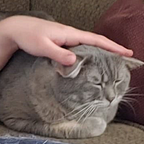Reflections on Nijisanji
This article is written for people already steeped in the world of Virtual Youtubers. For those unfamiliar and needing context, I would recommend reading my articles VTubers Are the Future of Identity and Here’s What Virtual YouTubers Teach Us About Community.
I was there at the beginning of Nijisanji English. It was a rough time in my life, and I was using VTubers as a form of escape. I had already been watching Hololive for months, and I was excited to expand my horizons.
I remember feeling the debut single “Diamond City Lights” was oddly stilted, with the lyrics feeling like they had been written by a Japanese speaker who hadn’t even heard the music yet (there will always be a TOO-mor-ROW). Still, the girls were funny, and I fell in love with Pomu’s antics and her personal journey transitioning from life in an office job to playing Minecraft full time.
Wave after wave came, eight whole sets of new members by the time Hololive debuted its third. Although I lost track after a certain point, there were tons of personalities to appreciate and a real sense of Nijisanji as a community of friends began to emerge. I moved away from Hololive, which felt relatively isolated and stilted in comparison. Nijisanji felt unrestrained, like I was just watching a bunch of people having fun and building memories together.
Right now, it feels like that community is falling apart. Talent has been jumping ship since last summer, but with Pomu leaving this month and Selen being fired after alleged harassment that led to her attempting suicide, the feeling that the company is destroying itself by abusing its talent is intense. Apparently, Nijisanji has always been a bit of what the Japanese call a “black” company, but I was not really aware of this until the recent explosion.
You might question the wisdom of mistreating one’s talents when the core of your business model involves people developing intense parasocial bonds with them. Still, I don’t expect Nijisanji to collapse any time soon. We live in the age of Technofeudalism. Nijisanji is a platform that makes money by owning a large amount of capital and extracting rent from the producers who use that capital. In this case, the capital is relatively abstract: it’s a brand name, a community, access to an audience, and a network of artists and modelers and riggers and songwriters and clippers.
Many of the talents, like Pomu, Nina, and Mika have left because Nijisanji failed to support them in their creative endeavors. Yet, because of the great community and resources at the company’s disposal, you can expect people will still want to join. Even if the services provided by the company are terrible and bad for the mental health of its talents, the capital it possesses is astounding. People will still be attracted to the promise of an instantly supportive audience, networking opportunities, and a chance to work with their literal idols.
It’s like owning an apartment building in the middle of New York City. People with better options aren’t going to want to live in it if there’s a mold problem and the landlord refuses to pay for basic repairs, but there will always be more starry eyed dreamers willing to grin and bear it for a chance to make it in the capitol of the world. Fundamentally, Nijisanji is not a company that provides a product, but a platform that extracts rent. As long as it maintains enough of its critical infrastructure, it will continue to survive.
I’ve written a bit on the idea that VTubers are a form of identity based around the profile, an advanced element in what philosopher Hans Georg Moeller calls the “age of profilicity.” Part of what Nijisanji owns as a platform is the identity profile of its talents. This profile includes a name, a digital avatar, a backstory, a set of affectations and attributes. It’s part of what makes it so enticing to join (they will build your profile for you) and so difficult to leave (you cannot take that profile with you). The purple dragon whose fans are named dragoons is gone forever. Selen Tatsuki is dead, long live Dokibird.
This isn’t really that tragic. Selen Tatsuki was a cool profile, but really we’re all here for the authentic person behind it. The reason I mourn Selen and Pomu and the others isn’t because they lost an avatar, but because they lost a community. In part because of the way these corporations work, and in part because they are no longer a unit, I will never again get to see the dynamic that made me fall in love with Nijisanji.
We all go through transitions like this. I remember that when I spent two months in Egypt I made real close and intimate friendships that basically evaporated when I went home, because we didn’t actually have that much in common outside of the experience. I hear it’s very similar for people who join the army. Even if the experience itself is terrible, you develop deep bonds that you can never really replicate in civilian life, and that’s something worth mourning. Community is such a powerful thing that you may be driven to suicide over the prospect of losing it. Many choose death rather than experience that loss.
No man is an island,
Entire of itself,
Every man is a piece of the continent,
A part of the main.
If a clod be washed away by the sea,
Europe is the less.
As well as if a promontory were.
As well as if a manor of thy friend’s
Or of thine own were:
Any man’s death diminishes me,
Because I am involved in mankind,
And therefore never send to know for whom the bell tolls;
It tolls for thee. — John Donne
